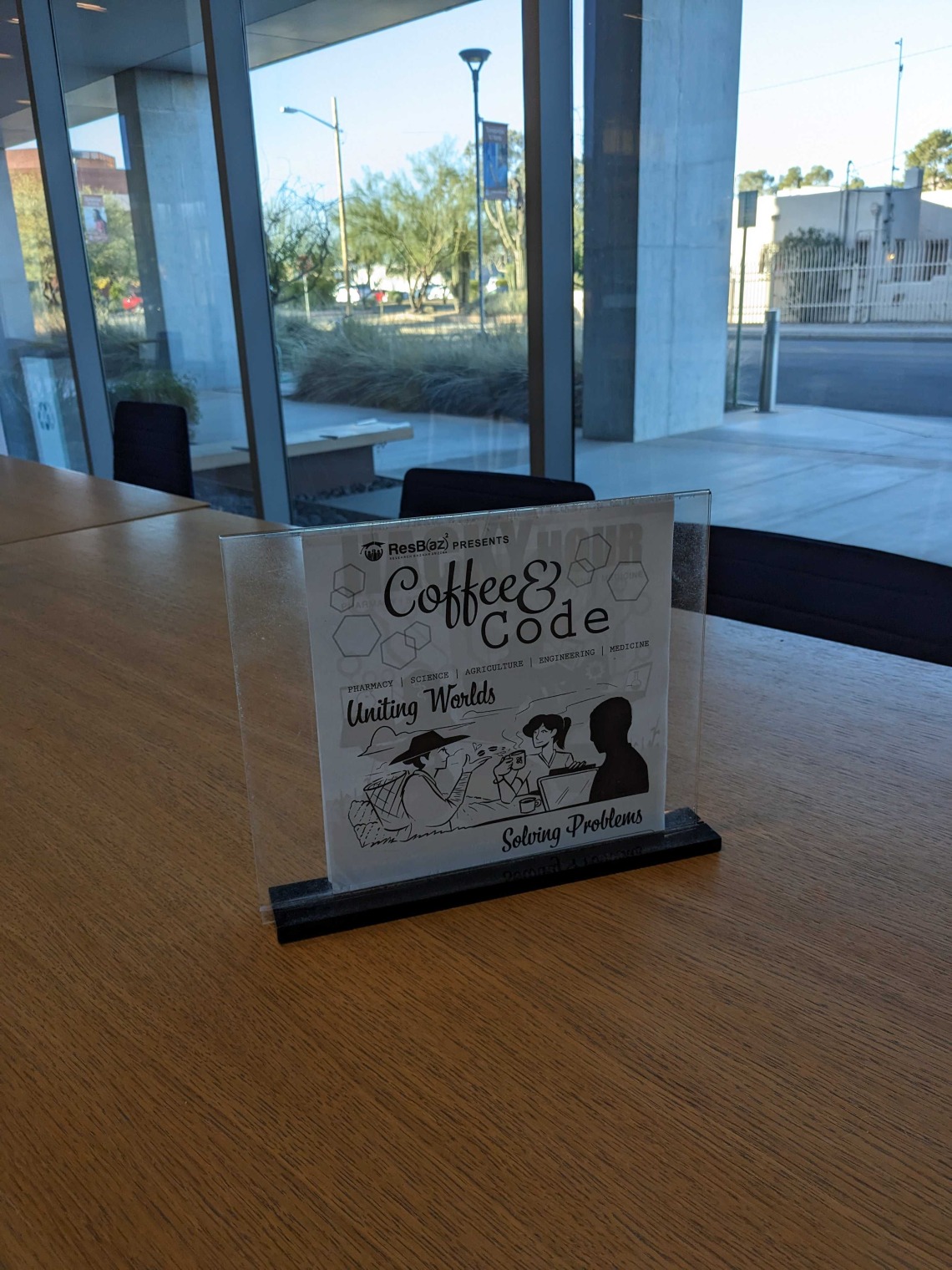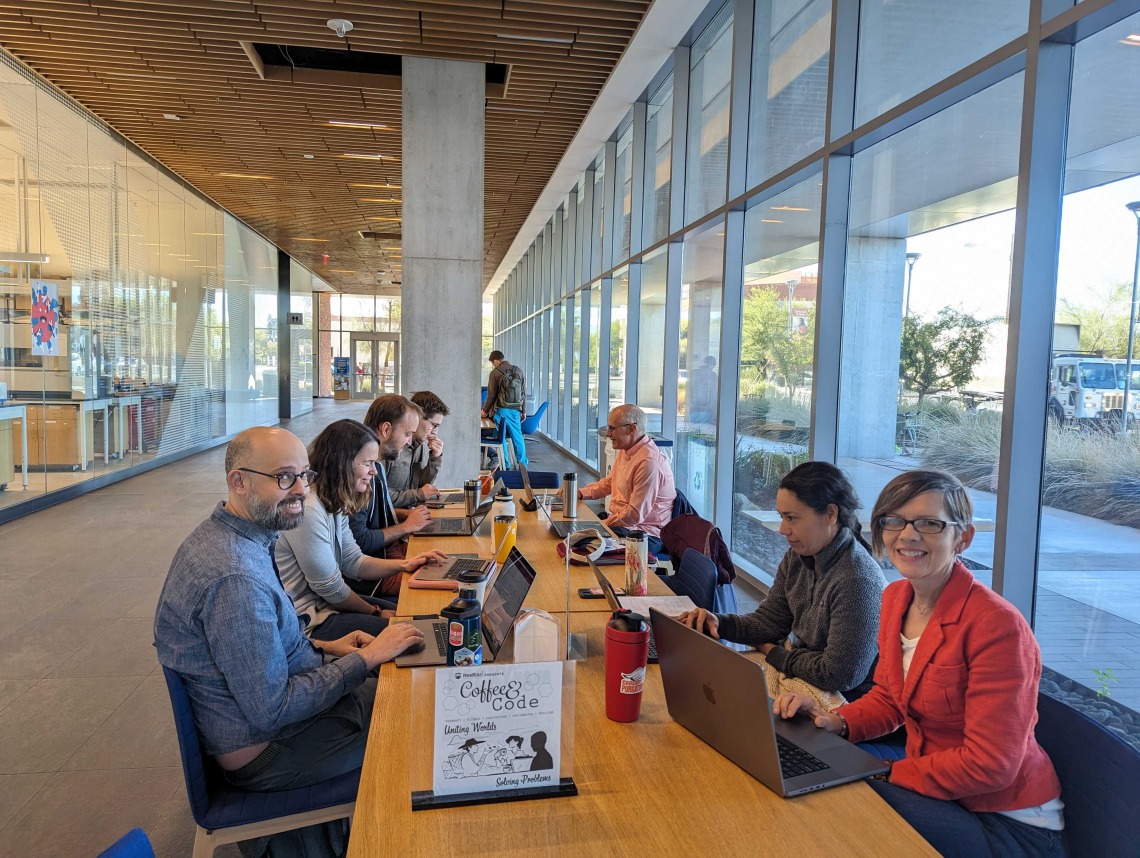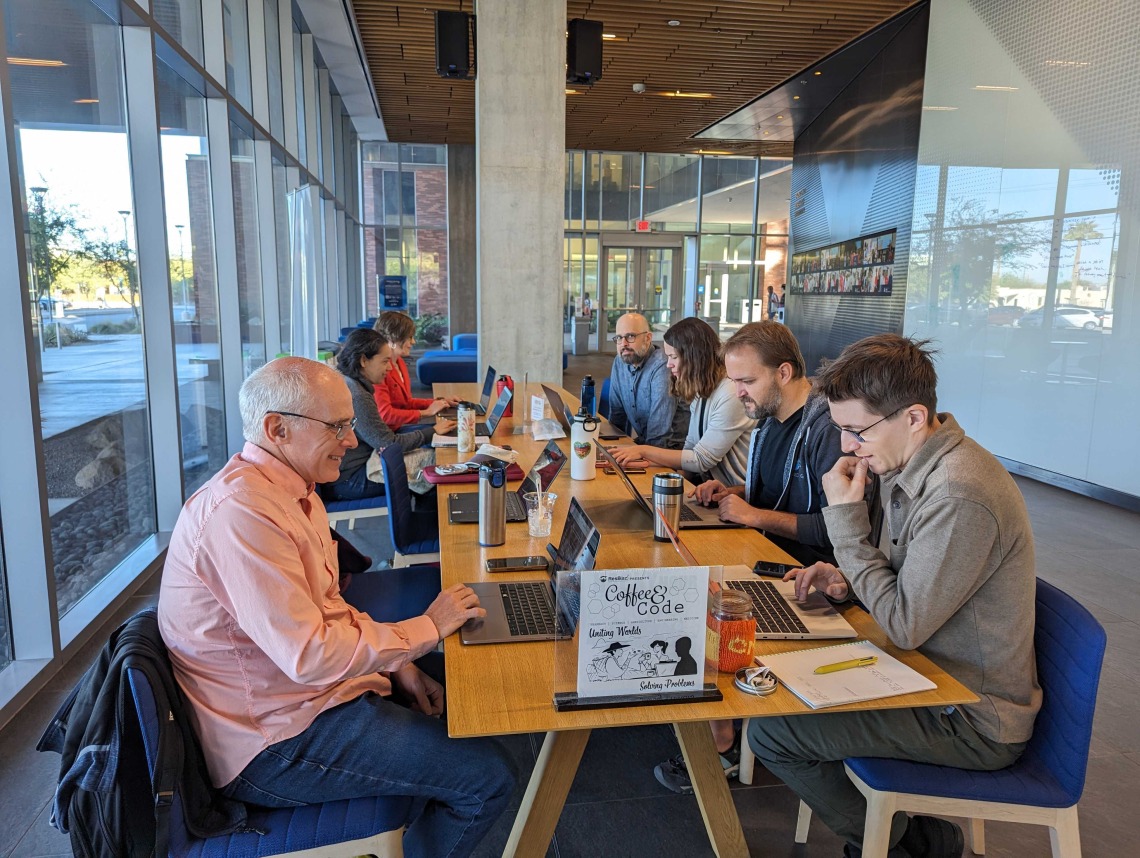Beyond coding support – Coffee and Code provides community
A unique community-driven service in Tucson, AZ, Coffee and Code, has been providing support since 2016. Currently hosted by several partners including Dr. Valeria Pfeifer and Julian Pistorius, this weekly gathering serves as a beacon for non-researchers and researchers seeking not only coding assistance but also a supportive community to navigate the challenges of research projects. Coffee and Code is more than just a help desk; it's a community where individuals from diverse backgrounds and cross disciplines come together to troubleshoot code, seek advice on various challenges, and foster connections. The welcoming atmosphere encourages both newcomers and repeat visitors to participate.
The Coffee and Code weekly meetings take place Wednesdays from 8:30 AM to 10:30 AM at the UArizona Bioscience Research Lab (BSRL) building Catalyst Café (Helen St./Cherry Ave). The gatherings continued seamlessly, even transitioning to an online format during the COVID-19 pandemic, ensuring the continuity of support for researchers during challenging times.
Dr. Valeria Pfeifer, a post-doctoral research associate at the UArizona Naturalistic Observation of Social Interaction Lab, emphasizes that Coffee and Code is open to everyone, regardless of (non)affiliation with the University of Arizona. Pfeifer and Pistorius proudly describe Coffee and Code as a "mutual support group." What starts as seeking technical help often evolves into finding a community of individuals who share common interests and are willing to provide support beyond programming challenges. Pistorius notes, "People end up finding a community of other people that can maybe help and talk to you about non-programming things as well, and just general problem-solving."
While a focus is on addressing coding challenges, Coffee and Code goes beyond merely resolving error messages. Participants have the opportunity to engage in discussions ranging from career advice and thesis writing, to learning programming skills that extend beyond conventional academic training. The community has successfully tackled issues in various research areas including data science, astronomy, genomics, biostatistics, ecology, biology, plant science, health sciences, psychology, linguistics, computer sciences, engineering, information sciences, and more.
The impact of Coffee and Code extends to cross-disciplinary collaboration, with projects including The University of Arizona Wild Cat Research and Conservation, SimPrily—a Python framework simplifying high-throughput genomic simulations, and the iCPET Calculator—a web-based application standardizing the calculation of Alpha Distensibility in patients with Pulmonary Arterial Hypertension. The diversity of research areas represented at Coffee and Code adds a unique dimension to the community, showcasing the versatility and applicability of programming skills across various domains. As Dr. Pfeifer highlights, "The diversity of research areas that attend Coffee and Code is so fulfilling when we can see the many different applications of the programming."
Coffee and Code is part of the broader Research Bazaar (RezBaz) community, which organizes additional events such as Hacky Hour (Hacking + Happy Hour = HackyHour!) and the annual RezBaz conference. These events further contribute to building a vibrant and interconnected research community that extends beyond the boundaries of coding assistance.
Coffee and Code is a testament to the power of community-driven support. By offering more than coding assistance, it has become a vital hub for non-researchers and researchers to connect, collaborate, and find solutions to the multifaceted challenges of research projects. As the community continues to grow, Coffee and Code remains a beacon of empowerment and camaraderie for those navigating the complexities of data science and research.



